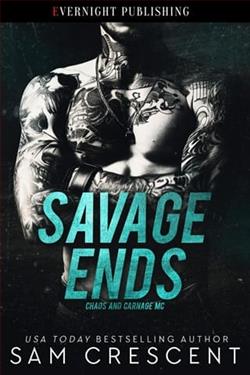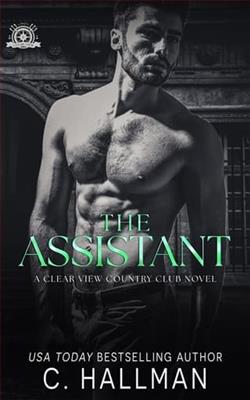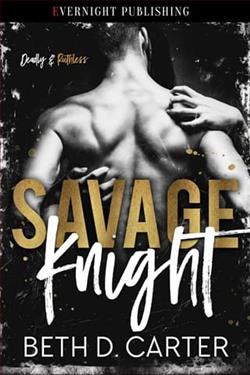Page 86 of The Cake Fairies
“But how do you know all of this?”
“Since Annabelle asked me to do a little detective work. When was that, Tuesday?” Ivy winked and Annabelle nodded conspiratorially. “But that’s not the biggest thing I know…”
***
“I’ve been waiting for you for approximately my whole life.”
Polly held her breath, and then she held her breath again – this was getting perilous and in a moment she’d turn the same hue as his eyes. But she listened as intently as she could while trying her very best to hide the fact that she had the advantage of universal knowledge. Well, in as far as she could fathom this time-lapse malarkey out, anyway.
A solitary lifetime simply didn’t exist. It was impossible.
Because you really could come back and do things again and again, as it turned out – or, indeed, spring several decades forward. She’d even be bold enough to claim that the notion of time travel alone hinted that when she died, she could likely choose to reincarnate herself as one of her heart’s desires. And not just as a cute tabby cat or a flower or a huggable tree, but as another human being with another unique set of struggles and dreams, another viewpoint of the world. These lives were like portholes inside a giant cruise-liner whose cabins and decks went on forever across an eternal sea. It was an inner knowing that had blossomed deep within over the past eleven months. And it brought great comfort to think that her parents were hopefully enjoying a new life, too; perhaps their paths had even crossed with hers in the here and the now. Well, the relative here and the now, as it were.
Just as long as her father hadn’t morphed into Nigel. Or that blithering idiot, Taz.
Ooh, perhaps her mother had been Festival Kate?
She swallowed down a laugh. She sensed things were about to get serious, and she wanted that more than life itself. More than any of her lives. Just as long as things lightened up swiftly thereafter! Geez, Einstein deserved every one of his accolades though. Spacetime was a blimming minefield. A quantum physics minefield.
“Something peculiar happened years ago at Tivoli; it’s a large theme park in our city. I’d love to take you there… and this time I’d definitely show up.”
Man, she hoped the aftermath of Annabelle’s antics would fizzle out sooner rather than later. And that very sentiment had her head struggling to stay afloat amidst the information overload that had been today – to date.
Add to that Alex’s hints at a possiblerelationship?
Arghhh!
But Polly nodded her head anyway in a bid to at least tread water, resigning herself to the fact that it would take another lifetime just to catch-up with the data required to successfully live in the twenty-first century. Until then she’d just have to wing it, conveniently ignoring the fact she had a matter of weeks to do so.
“It’s going to sound a little crazy,” Alex faltered. Just try her, Polly thought. “But hear me out.”
She smiled a shy smile and let her eyes flutter due west until they rested on Alex’s pensive face. They were sitting a disappointing person-width apart on a bench by the River Thames, attempting to unravel so many things as the sun turned the waters a strange mix of jade and coffee. Maybe she could salvage his friendship? ‘Make do and mend’ as her mother used to say. Maybe that would be enough to carry her on through the rest of her set-piece village life.
“Okay, so one day I was sitting on a bench like this one,” he said. “I was watching the swan-shaped boats on Tivoli’s lake; dreaming of the classic pastry Tivoli cake my brother was about to be rewarded with – he’d impressed Dad for the millionth time since he’d finished the entire works of Hans Christian Andersen…again.”
A tugboat cut through the river, towing its rubbish-load behind it, unbendingly fixed on its destination. It was hardly picturesque, yet somehow it felt symbolic for the shackles Alex was about to remove.
“I’d always struggled with letters at school, well, numbers too, but that was okay because in Denmark teaching is relaxed, the focus on play and creativity; learning through interest, a bit like the vocation I find myself in now.” He let out a leaden sigh; the type Polly sensed was weighted down with so many layers of pent-up emotion. “While I may not have gotten grief at school for my ineptitude, my father was a staunchly proud academic – still is. I’ve just chosen not to listen to it anymore. Huh, pretty easy when you’re not even in touch,” he twiddled his thumbs. “Back then of course, it got to me. But anyway, the Tivoli cake. Don’t feel too sorry for me: big bro always gave me a bite or two when Dad wasn’t looking – oh yeah, this was our unspoken weekly sibling ritual,” he smirked at the memory. “My childhood was one of tough love. If I’m honest I’m not even sure it was that.”
“Didn’t your mother try to…?”
She regretted her words the moment they spilled unbidden from her lips. If there was a maternal presence on the scene, surely, he would have revealed her already.
“Left when I was two. Shacked up with a super-rich Swede, sped over the bridge to Malmö and never looked back. I know what you’re thinking: how can I have suggested we made that Swedish summer masterpiece?”
Actually, that was the very last thing she was thinking, but Polly didn’t have the heart to interrupt his flow. Clearly, he’d been carrying these feelings of abandonment for a lifetime. No matter how long it took, she had to provide counsel. She wanted to help.
“But there can be no hard feelings when it comes to cake.” Well, she could definitely identify with that. No way could her mother’s siphoning off of all things sweet in her childhood home have thwarted her own passion. “There’s an exception to every rule. All of this is by-the-by, though.” He looked her in the eye then with such intensity she wanted to jump on him and kiss him without coming up for air. “So, as I was saying,” Polly forced herself to behave, and crossed her legs. “I’d been feeling pretty lousy and then this dinky little woman appeared from practically nowhere and sat on the other end of my bench, admiring the swan boats, throwing bits of bread out to them as if they were real birds. Of course, you can’t do that these days even with the best of intentions.” Polly’s eyes widened. There really was a lot to catch-up on in this conundrum of a century.
“I realise now that was just her way of getting a kid to talk to a stranger. Denmark may be relaxed but we’d all heard the warnings about grown-ups with bags of sweets, especially in our fairy tales. She didn’t stay long anyway; said she was traveling with the local circus. I told her lettuce was the new bread, said the swans were plastic, and that’s when she said: ‘You’ll meet a girl with the grace of a swan one day.” Polly could practically hear the words and the giddy little chuckle that would have been expelled, as the woman dished out her unsolicited but wordly-wise advice. “‘Why don’t we call that one Polly?’ she’d said, as one ornamental bird glided closer.”
A shiver ran down Polly’s spine. She was yet to assess whether it was a good shiver, for those words sounded uncannily Amber Magnolia-ish, or as if they’d come from one of the international counterparts to which she’d alluded.
“She rambled on about a hundred other insignificant things as I watched her from the corner of my eye as she tore at her bread. I remember shifting my butt so far to my side of the bench that I almost toppled off; petrified a warden would assume I was poisoning the wildlife. It’s like a dream, now, though. And I can’t say I ever thought too much about it over the years. It wasn’t as if the woman ever showed up again. I was convinced she was a bizarre figment of my imagination; a pencil sketch that, even if it came to me in a random flashback, I’d assume I’d invented that autumn day. But then I moved to London.”
Alex turned to look at her, the intensity building all over again.
“I… um.”















